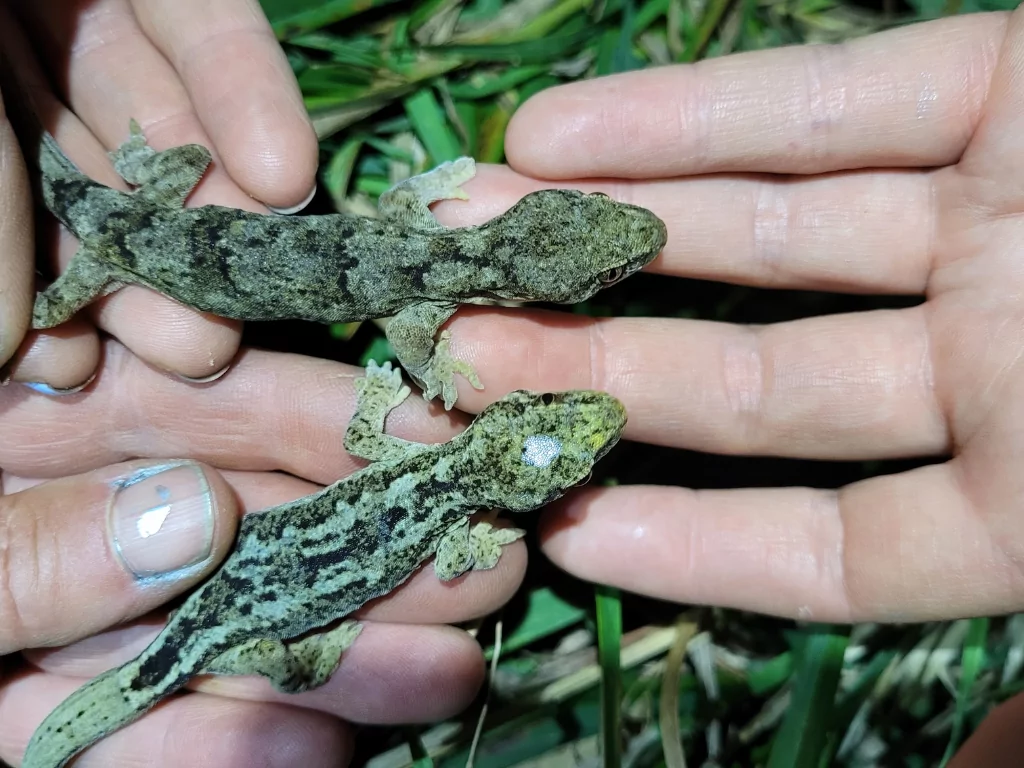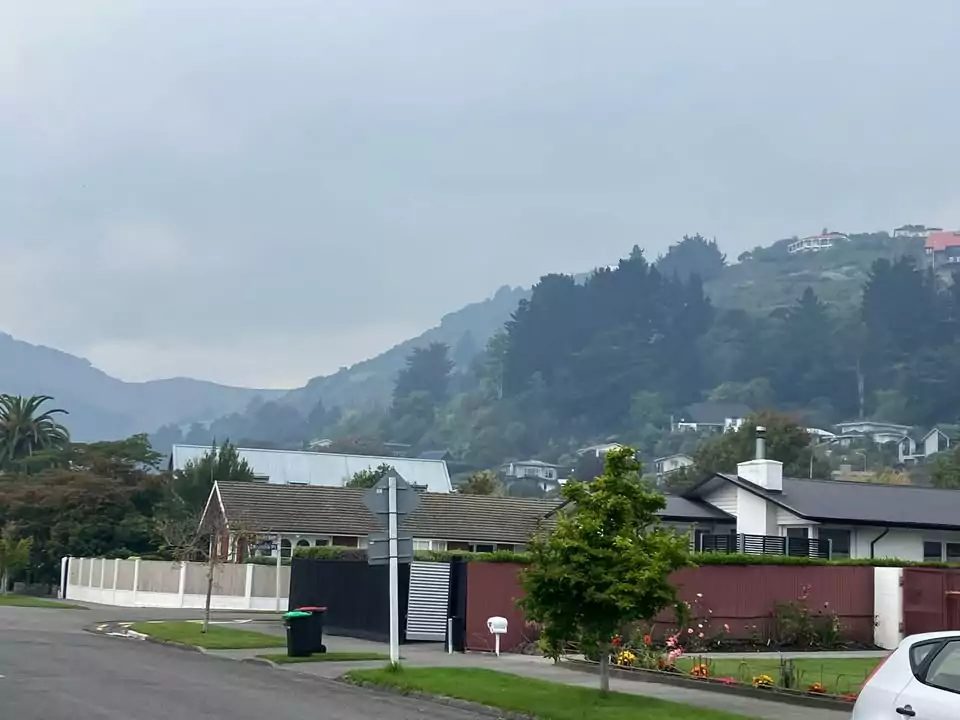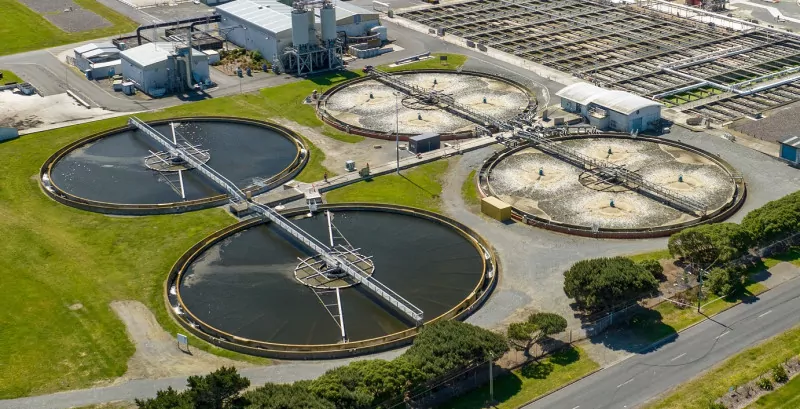Two Waitaha geckos living on a predator-free island off the North Canterbury coast are now believed to be the oldest geckos ever recorded — aged approximately 60 and 64 years.
The extraordinary find was made during a routine five-yearly monitoring trip by the Department of Conservation (DOC) to Motunau Island, a small offshore sanctuary known for its rare reptile populations.
The geckos, named Antoinette and Brucie-Baby, were first marked in 1967 and 1969 by the late herpetologist Tony Whitaker. His detailed record-keeping and unique toe-clip identification system enabled DOC staff to accurately confirm the lizards’ ages.
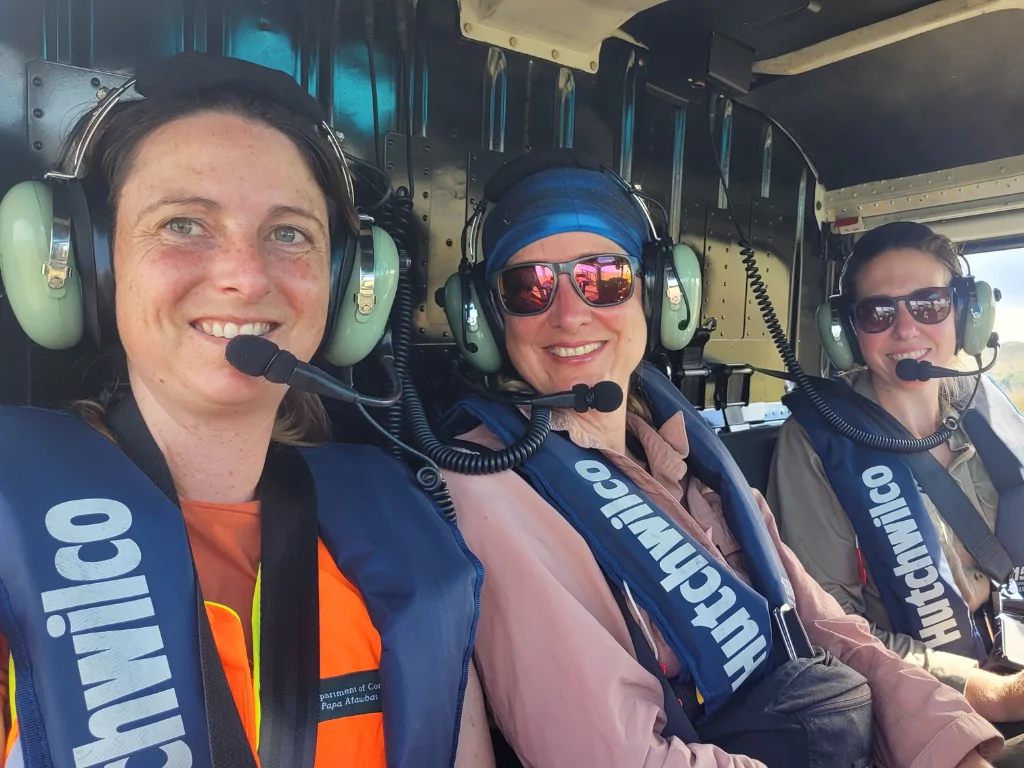
Allanah Purdie, Herpetologist Marieke Lettink, Kaitlyn Leeds
“We were all blown away to find two of the original marked lizards,” said DOC Biodiversity Ranger Kaitlyn Leeds. “We found Antoinette first, who we dated at more than 64 years old. Then we found Brucie-Baby, who is around 60. It was an incredible moment.”
The previous age record for a Waitaha gecko was 53 years, set in 2015 on the same island. Whitaker’s research between 1965 and 1967 involved marking 133 individual geckos — a practice no longer used today, but one that has proven invaluable for understanding the species’ longevity.
DOC Biodiversity Ranger Allanah Purdie, who was also part of the monitoring visit, said the discovery was astonishing.
“It’s amazing they’ve existed on this postage stamp of an island since before the moon landing. While we no longer toe-clip, it’s given us a rare window into how long these animals can live in the right conditions.”
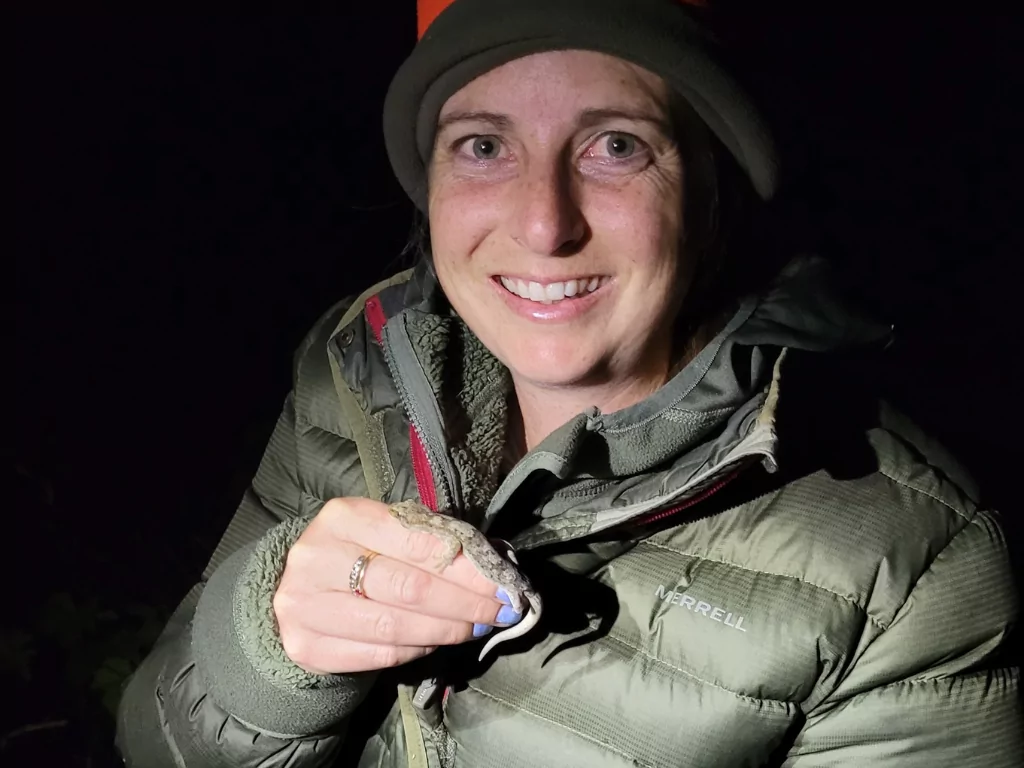
DOC Biodiversity Ranger Allanah Purdie
Longtime herpetologist Marieke Lettink, who has been studying the island’s lizards for 20 years, said the find defies expectations.
“They really are remarkable. I didn’t expect to find two of Tony’s old mates still living. In global terms, it’s unheard of. Most geckos live around ten years. This puts our native species in a league of their own.”
According to Leeds, the two females are in surprisingly good condition.
“They look a bit skinnier, with looser skin, but honestly, you wouldn’t know they were over 60. It might be the cool climate, the lack of predators, or maybe even the salty air. But it does raise big questions about the impacts of predation and how that affects reptile longevity on mainland New Zealand.”
Waitaha geckos are classified as at risk and in decline. They are typically found in rocky, lowland areas of Canterbury that offer warmth and shelter from predators.
“These geckos are a special part of New Zealand’s native wildlife,” said Purdie. “To find them still thriving after more than six decades is a privilege. Hopefully, we’ll see Antoinette and Brucie-Baby again on our next trip in five years. Who knows how long they’ll live.”
